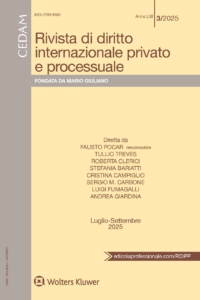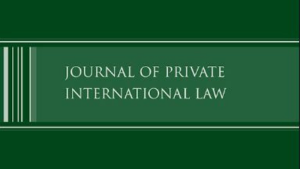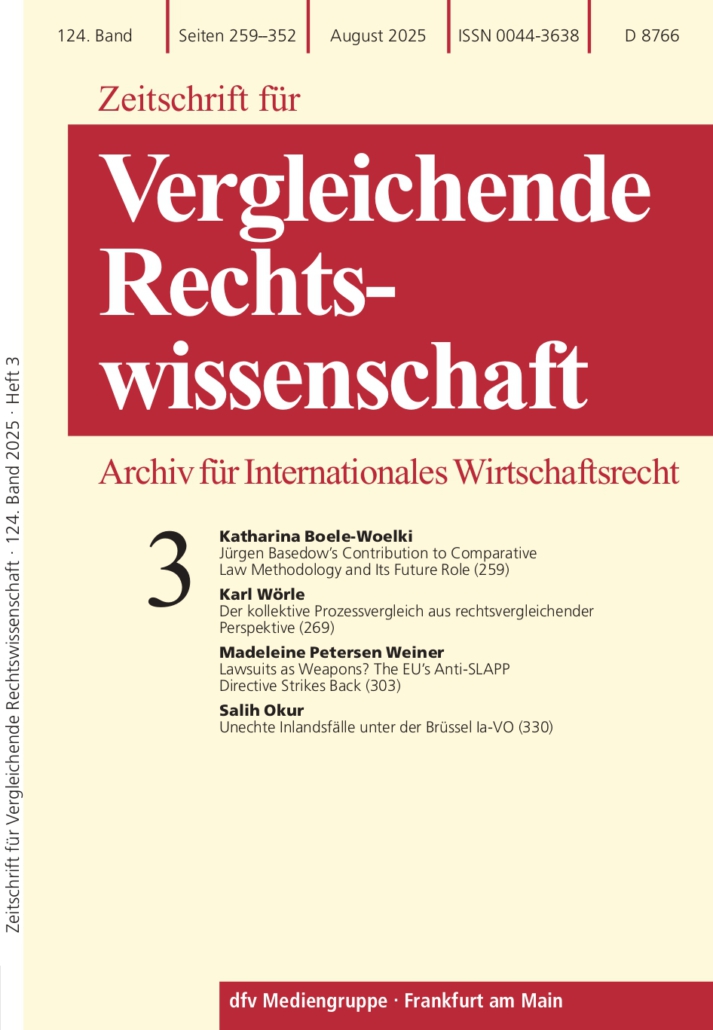Short report: Conference on Sustainable Global Value Chains and Private International Law
On 17 October 2025, the EBS Law School in Oestrich-Winkel, Germany, hosted a conference Sustainable Global Value Chains and Private International Law. The conference was organised by Professors Veronica Ruiz Abou-Nigm (Edinburgh Law School) and Michael Nietsch (EBS Law School) as part of the Law Schools Global League Sustainable Global Value Chains Project (see also here).
The conference brought together a number of scholars specialised in private international law, company law, and contract law to discuss the role of private law and private international law in social, economic, and environmental sustainability within global value chains.
Keynote
Ralf Michaels (Max Planck Institute for Comparative and International Private Law, Hamburg, Germany) delivered the keynote lecture entitled “European Law for Global Value Chains – Human Rights Advancement or European Imperialism?” Professor Michaels addressed this question from a historical perspective. He related the historical roots of existing sourcing practices to contemporary supply chains, drawing on a wealth of theoretical insights. He further reflected on the conceptualisations that remain necessary for the legal discipline to contribute to addressing economic inequalities in contemporary global sourcing practices facilitated by interconnected chains of contracts.
After the keynote, several scholars provided insights into their current research, which resonated with various aspects of the keynote lecture. Read more





